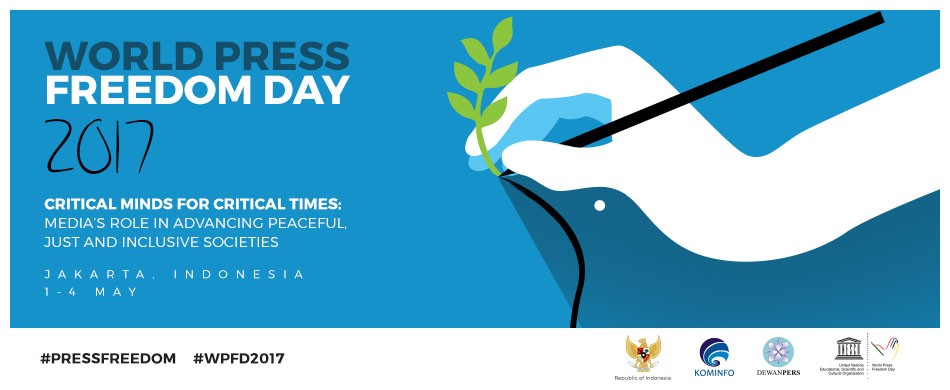In observation of World Press Freedom Day, CIMA and the International Forum for Democratic Studies will host a discussion with six journalists from around the world on Wednesday, May 3, at 4:00pm. Please find more details and RSVP for the event here.
Last year, the official celebration of World Press Freedom Day took place in Helsinki, Finland, a country routinely rated as one of the best environments for press freedom in the world and the first country (alongside Sweden) to pass an access to information law in 1766. This is a tough act to follow. And while this year’s host, Indonesia, may not have the track record of its predecessor, there’s plenty of reason to laud the progress made in the country since the fall of the Suharto dictatorship in 1998. That being said, concerns about the safety of journalists are mounting.
Era Reformasi and Regional Leadership
Over the past two decades, Indonesia has enacted a reform agenda. Known as the “era reformasi,” it has resulted in Indonesia becoming one of the most stable democratic countries in Asia. The significant progress made during this era has extended to the media sector, which was liberalized significantly by the landmark 1999 Press Law. This law led to an explosion of independent, privately-owned newspapers, radio stations, and broadcast channels. It also established the now influential Indonesian Press Council and forbade government censorship. Since the adoption of the Press Law, Indonesia has become home to a pluralistic and dynamic media that is rivaled only by the Philippines in a region where most of the countries languish in the bottom third of the Reporters Sans Frontiers Press Freedom Index. Indeed, Indonesia has become a regional leader in media reform, with its leading journalists and the Press Council helping to establish independent press councils in neighboring Myanmar and Timor L’este.
Journalists Under Threat
While Indonesia may have experienced a period of significant improvement in its media environment since the fall of Suharto, in recent years, many observers are now concerned by an increase in violence against journalists. The former president of the Alliance of Independent Journalists (AJI) and current chair of the board of trustees of the Southeast Asia Press Alliance (SEAPA), Eko Maryadi, says that violence against independent journalists and impunity is quickly becoming the most urgent threat to press freedom in the country. Last year alone, AJI reported 80 acts of violence against journalists in the country, nearly double the number of reported instances in the previous year
While it is not clear what is causing the uptick in violence against journalists in Indonesia, the heightened presence of hate speech in the country’s political discourse, especially on online platforms has become of great concern to many monitoring freedom of expression issues. Most recently, a highly contentious gubernatorial election in Jakarta between a popular Chinese-Indonesian Christian, Basuki Tjahaja Purnama, popularly known as “Ahok,” and his rival, an Islamic conservative named Anies Rasyid Baswedan, was the subject of heated online debate that centered heavily on ethnicity and religion. This stoked sometimes violent street protests as well as blasphemy charges against Mr. Ahok. Eventually, Mr. Ahok was defeated and remains on trial for blasphemy.
It should be no surprise that when hate speech and extremism seep into national debate that journalists, who work on the front lines of some of the most sensitive issues in societies, are most at risk of violence. It is timely, then, that a major theme of this year’s World Press Freedom Day is the issue of hate speech and combatting extremism. This is reflected in the conference theme, “Critical Minds for Critical Times: Media’s role in advancing peaceful, just, and inclusive societies.”
What will Jokowi do?
When the Indonesian President, Joko Widodo, known popularly as Jokowi, addresses the conference on the evening Wednesday May 3rd, it will be important for him to publically acknowledge and confront the threats being faced by journalists not just in Indonesia, but in societies all over the world. As Human Rights Watch recently warned, “Indonesia’s considerable gains in media freedom since the fall of authoritarian President Suharto in 1998 will not be sustainable if the government does not respond promptly and vigorously when journalists and media organizations are harassed or suffer violence.”
President Widodo’s reform-minded government will be under pressure to address this problem. The question is what will he and his government do to stem the tide of violence against journalists and protect Indonesia’s hard fought reputation as a regional leader in press freedom and media reform?
Paul Rothman is the Assistant Partnerships Officer at the Center for International Media Assistance in Washington, DC.


Comments (0)
Comments are closed for this post.